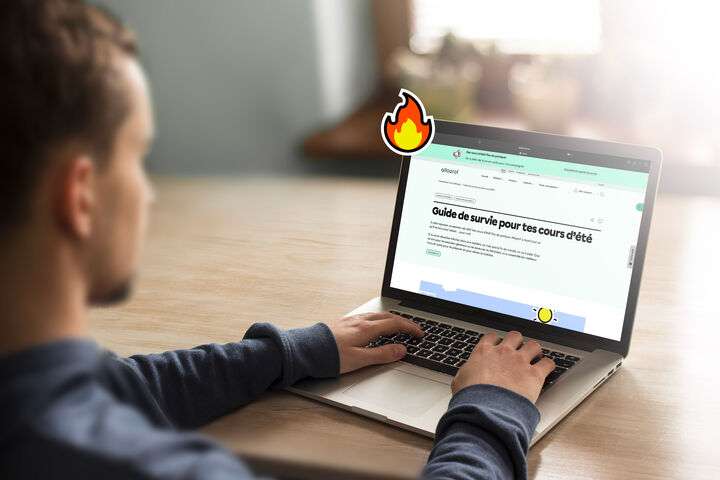Une intéressante discussion sur ce sujet a eu lieu dans le groupe Facebook Enseignants et enseignantes du Québec. Elle a permis de faire ressortir les avantages et les inconvénients de cette méthode de communication avec les parents, mais aussi de proposer des alternatives. En voici un résumé.
Pour certains enseignants, un groupe Facebook privé dédié aux parents s’avère une façon simple et transparente de communiquer. Karine Godin-Tremblay parle de son expérience : « Pour ma part, j’ai un blogue et un groupe Facebook secret et les parents adorent! Ils sont plus près de l’école et de leurs enfants et aiment qu’on publie des nouvelles de la classe, photos, fichiers, échange de messages… Ils peuvent poser des questions et se répondre mutuellement, ou par moi. Positif pour ma part et transparent. »
Même chose pour Kathleen Cryans, qui aime beaucoup cette façon de faire : « J’ai un groupe Facebook pour les parents et les élèves de mes deux groupes. Pour le gérer, nous sommes deux profs qui travaillent avec les élèves ainsi que la TES de l’unité. Nous enseignons au secondaire et, franchement, ça marche super bien. On y dépose les notes de cours, les photos, les dates des évaluations, les devoirs et leçons. C’est un lieu où on répond directement aux questions des élèves sur les devoirs, etc. C’est pratique, efficace et facilite la communication. Nous en sommes à notre deuxième année d’exploitation. »
Voici quelques conseils qui sont ressortis de la discussion :
– Se créer un profil Facebook différent pour son rôle d’enseignant (bien que techniquement, si les paramètres de confidentialité de votre compte sont bien réglés et que les parents ne sont pas « amis » avec vous, ils ne peuvent pas consulter vos informations personnelles);
– S’assurer que le groupe créé soit « privé » et n’y admettre que les parents des élèves d’une classe à la fois;
– Si on compte y diffuser des photos des enfants, s’assurer d’obtenir l’autorisation écrite de tous les parents;
– Porter une attention particulière à la qualité de la langue dans les communications : « Il y a des parents qui n’attendent que les erreurs… et tout ce qu’on écrit peut être mal interprété ou jugé », met en garde une enseignante. À ce sujet, Kathleen Cryans propose d’affronter le problème directement : « Nous avons fait la différence entre ce type de communication et une lettre officielle. La lettre officielle ne contient pas de fautes, alors que sur Facebook, des erreurs peuvent se glisser. C’est accepté car confronté dès le départ. »
Parmi les alternatives proposées, on suggère de regarder du côté d’Edmodo, une plateforme semblable à Facebook, mais spécialement dédiée à la communication entre l’enseignant et les élèves ainsi qu’avec les parents. On propose également la création d’un site à l’aide d’un outil comme Google Sites ou simplement un blogue. Certains enseignants préfèrent communiquer avec les parents directement par courriel. Cela leur permet un échange personnalisé et, si nécessaire, ils peuvent écrire à tous les parents à la fois.
Évidemment, il n’y a pas que des avantages à être facilement accessible pour les parents. Une enseignante témoigne : « J’ai déjà donné mon adresse courriel aux parents, parce que ma prof de stage le faisait. (…) Après avoir reçu un courriel de plainte de 2 pages d’une maman, j’ai cessé cette pratique, car quand je l’ai lu, de chez moi à l’heure du souper, ça m’a mise hors de moi, ça m’a rendue anxieuse, et je n’ai pas réussi à décrocher. » Elle reconnaît pourtant qu’il y a plusieurs avantages à échanger directement avec les parents, mais cette mauvaise expérience l’en a découragée.
Et vous, quel moyen de communication privilégiez-vous avec les parents? Et quels sont vos conseils pour ceux qui souhaitent utiliser Facebook?






